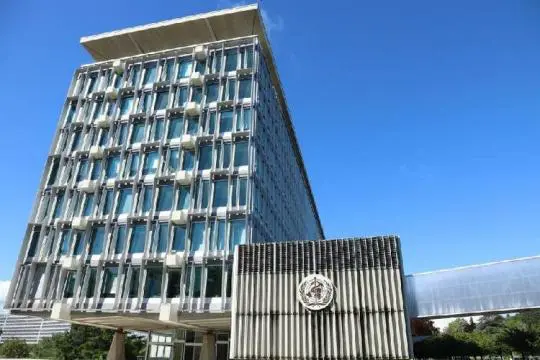Senior mainland lawmaker Li Fei reiterated the stance that someone who opposes the Central government cannot be elected as the Chief Executive (CE) of Hong Kong, and the candidates must nominated by a nominating committee.
Adressing a luncheon in the Hong Kong Government House on Friday during his three-day visit, Li said, "If the CE is against the central government , how could he uphold his consitutional duty under the Basic Law, and be responsible to the Chinese government? " Not only will this ruin Hong Kong's prosperity, the "One country, two systems" regime will also be prone to severe impacts, Li said.
This echoes his predecessor Qiao Xiaoyang, who made a similar statement in March this year.
Meanwhile, he said under the decision of the Standing Committee of the National People's Congress (NPCSC) in 2007, the nomination of candidates must be made by a nominating committee as an institution, which can be formed with reference to the exisitng Electoral Committee.
In addition, anyone who meets the requirement of the Basic Law Article 44, will be eligible to be nominated as a CE candidate.
Article 44 of the Basic Law says: "The Chief Executive of the Hong Kong Special Administrative Region shall be a Chinese citizen of not less than 40 years of age who is a permanent resident of the Region with no right of abode in any foreign country and has ordinarily resided in Hong Kong for a continuous period of not less than 20 years."
These thresholds, akin to the mainstream electoral systems in western countries, imposes no unreasonable barrier, he said.
On the other hand, Denis Kwok, one of the pan-democratic Legislative Councilors of Hong Kong invited to the luncheon, said he would submit an open letter to Li, and express the pan-domocratic camp's wishes over the universal suffrage in 2016 and 2017.
Before the commencement of the luncheon, he told the media that he doesn't want to see Li rule out any proposition over the implementation of universal suffrage.
"Consultation period has not started yet. If there's any other idea supported by the public, it ought to be noted for further discussion," Kwok said.
Local news commentator Tai Hing Shing told the APD that Beijing is witty in setting a tight and a loose role respectively.
"The immovable rule is that the CE must be patriotic," Tai said, " But Li didnt manifestly deny the possibility of civil nomination. This tactic looks smart to me."
As such, Tai said, Beijing has left room for negotiation of nomination mechanism.
"Let's say, putting those who are publicly nominated into the official Electoral Committee could also be an acceptable to Beijing," he said.
Senior visiting lecturer of the Deparment of Journalism at the Baptist university of Hong Kong Bruce Lui Ping-kuen also said the possibility of civil nomination has not been 100 percent ruled out.
"If a candidate obtains high popularity amongst the public, I don't think he will be overlooked," said Lui, "But 'patriotism' is still the underlying prerequisite."
Lui said the nominating committee will have to take extra care in the course of nomination, because it would be their responsibility if an inappropriate gets nominated, and eventually wins the election.
Lui added that the "moderate" pan-democrats still stand a chance of "entering the race" of CE election.
"They've been playing a pivotal role in liasing the pan-democratic camp for Beijing," said Lui, citing Civic Party's Legislative Councilor Ronny Tong Ka-wah as an example.
About 100 persons from various sectors, such as top government officials, legal practitioners and chairpersons disctrict councils atteneded the luncheon. However, only seven lawmakers were invited, two being pro-democrats.
Hong Kong Chief Secretary Carrie Lam, organizer of the luncheon, explained that it was due to the limited spaces in the Government House therein.
 简体中文
简体中文

